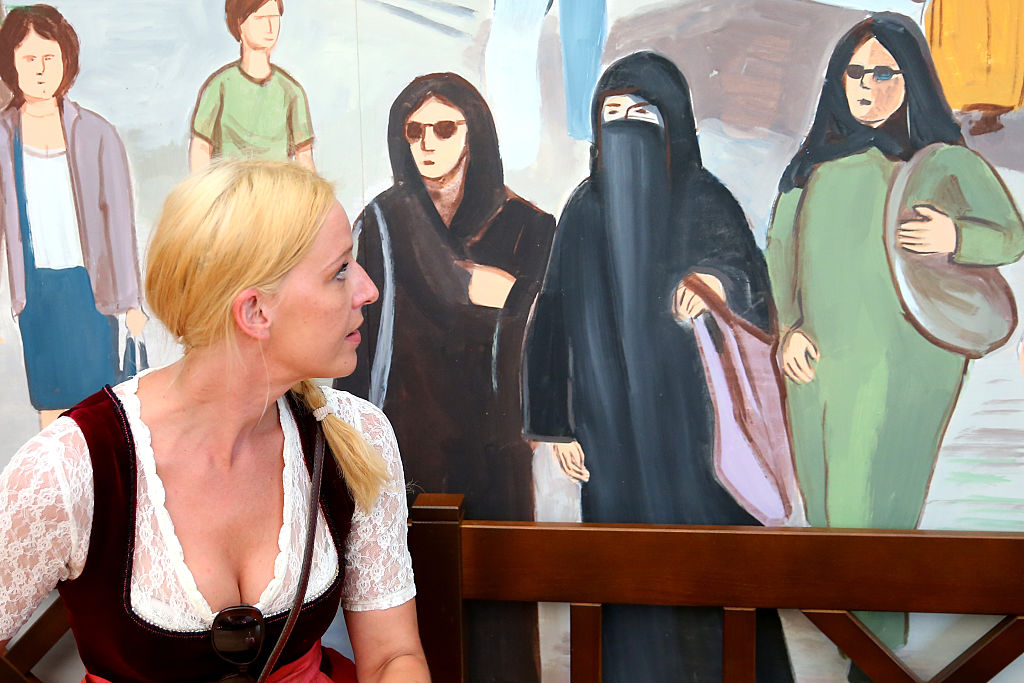December 12, 2017

(Alexander Hassenstein/Getty Images)
One of the most debated arguments about Muslims in Europe is the "Eurabia" claim: that high birth rates and immigration will make Muslims the majority on the continent within a few decades. For years, most of the media and analysts dismissed the claim as alarmist and racist. "Dispelling the myth of Eurabia", sniffed a major Newsweek cover.
Not many had the courage to sound an alarm. The great Arabist scholar, Bernard Lewis, sent out a warning more than a decade ago that Europe would turn Muslim by the end of this century, and dissolve into "part of the Arab West, the Maghreb". The late scholar Fouad Ajami also cautioned that "Europe is host to a war between order and its enemies, fueled by demography"; and the Italian writer Oriana Fallaci imagined a continent with "the minarets in place of the bell-towers, with the burka in place of the mini-skirt". Mark Steyn explained that "the future belongs to Islam" with an "enfeebled" West in a "semi Islamified Europe".
Ten years later, since Europe opened its borders to a massive wave of migrants from North Africa and the Middle East, the demographers reviewed their assessments.
New projections by the Washington-based Pew Research Center should be on the table of every European official and politician. The projections foretell that if the current wave of immigrants persists, in thirty years Europe's Muslim population will triple. If high migration continues, the Muslim share of Germany's population, could grow from 6.1% in 2016 to 19.7% by 2050. Even if all current 28 EU members, plus Norway and Switzerland, closed their borders to migrants, the Islamic population will continue to exponentiate. According to Pew's data, Muslims made up 4.9% of Europe's population in 2016, with 25.8 million people across 30 countries, up from 19.5 million people in 2010. Today it is an increase of six million in seven years. And tomorrow?
Pew's researchers looked at three scenarios: "zero migration" between 2016 and 2050; "medium migration", in which the flow of refugees stops but people continue to migrate for other reasons; and "high migration", in which the flow of migrants between 2014 and 2016 continues with the same religious composition.
In the medium migration scenario – considered by Pew "the most likely" - Sweden would have the biggest share of the new population at 20.5%. The UK's share would rise from 6.3% in 2016 to 16.7%. There will be similar percentages everywhere, from Belgium (15%) to France (17.4%). If high migration continues until 2050, Sweden's Muslim share will grow to 30.6%, Finland's to 15%, Norway's to 17%, France's to 18%, Belgium's to 18.2% and Austria's to 19.9%.
Pew's dramatic scenarios do not tell the whole story, however. What will happen in major European cities, where the Muslim communities are currently based? Will London, Marseille, Stockholm, Brussels, Amsterdam, Berlin and Birmingham all have Muslim majorities?
The French demographer Jean-Claude Chesnais in his book "Le Crépuscule de l'Occident" predicted an opulent but sterile continent, one in which population is characterized by death, not birth. According to the national statistics agency Istat, fewer than 474,000 births were registered in Italy last year, down 12,000 from the year before, with an even bigger drop from the 577,000 born in 2008. Italy has "lost" 100.000 births in ten years. The loss has been called "the great Eurosion". The old continent is "frailing".
Moreover, the fastest-breeding demographic group in Europe is also the most resistant to the pieties of a secularized liberal European democracy, which is seen as a sign of moral abdication from the true "path" or "way".
Under the "medium" and "high" projections in Pew's scenarios, how can Europe preserve all its most precious gifts: freedom of expression, separation of church and state, freedom of conscience, rule of law and equality between men and women?
According to the French author Eric Zemmour:
"If tomorrow there were 20, 30 million French Muslims determined to veil their wives and to apply the laws of Sharia, we could only preserve the minimal rules of secularism by dictatorship. That's what Atatürk, Bourguiba or even Nasser understood in their day".
Will Europe retreat into a non-democratic regime to preserve its own freedoms or will it lose these freedoms under the rise of these large Islamic communities? Considering what Europe witnessed in the last couple of years under terrorism and multiculturalism, what will happen in the next thirty years?
Jean-Claude Chesnais rightly called this shift a "crépuscule", a twilight. We are living through the self-extinction of the European societies of the Enlightenment. It has shaped the humanitarian age we live in – but may not any more.
Giulio Meotti, Cultural Editor for Il Foglio, is an Italian journalist and author.
No comments:
Post a Comment